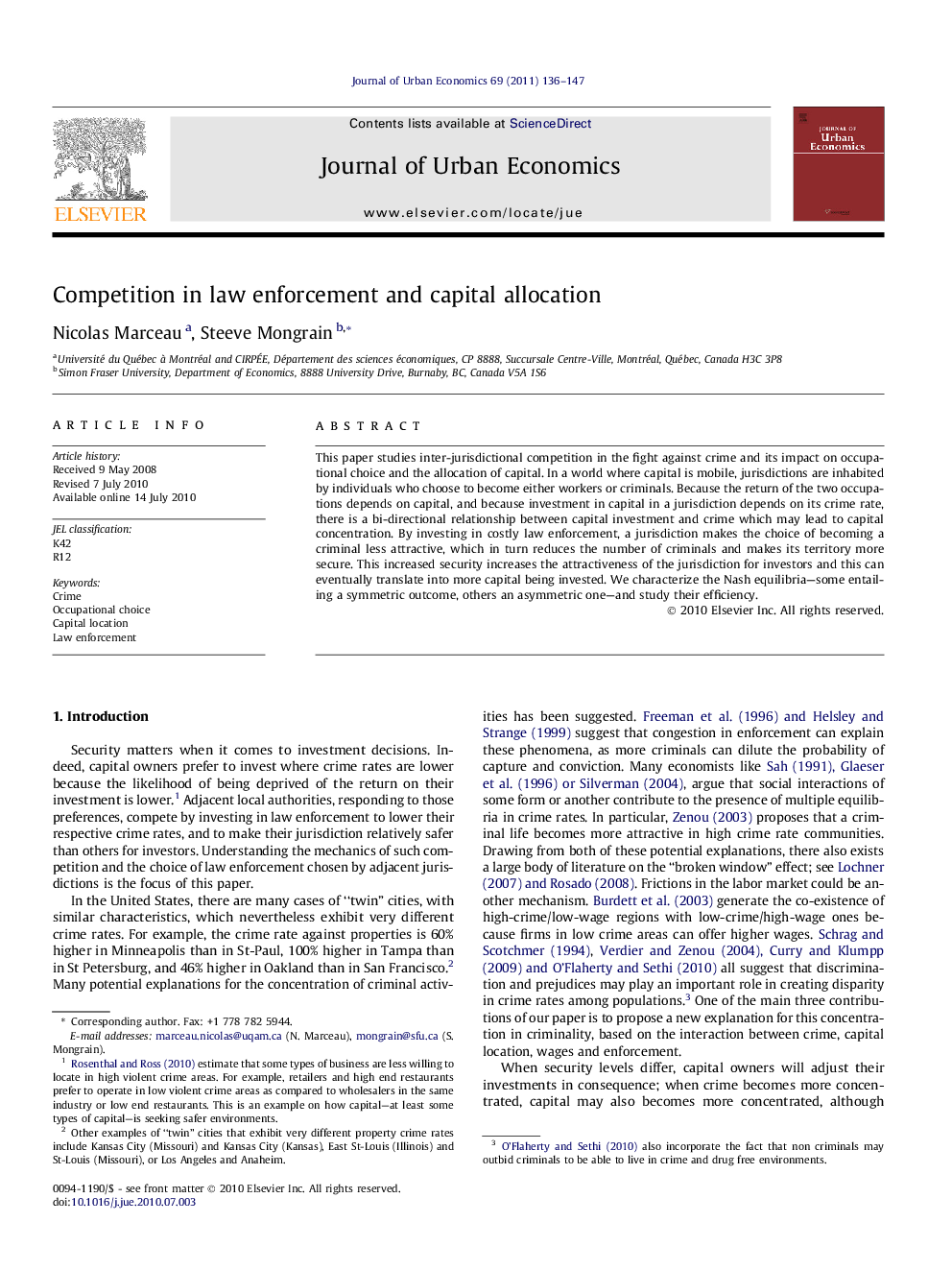| Article ID | Journal | Published Year | Pages | File Type |
|---|---|---|---|---|
| 970897 | Journal of Urban Economics | 2011 | 12 Pages |
This paper studies inter-jurisdictional competition in the fight against crime and its impact on occupational choice and the allocation of capital. In a world where capital is mobile, jurisdictions are inhabited by individuals who choose to become either workers or criminals. Because the return of the two occupations depends on capital, and because investment in capital in a jurisdiction depends on its crime rate, there is a bi-directional relationship between capital investment and crime which may lead to capital concentration. By investing in costly law enforcement, a jurisdiction makes the choice of becoming a criminal less attractive, which in turn reduces the number of criminals and makes its territory more secure. This increased security increases the attractiveness of the jurisdiction for investors and this can eventually translate into more capital being invested. We characterize the Nash equilibria—some entailing a symmetric outcome, others an asymmetric one—and study their efficiency.
